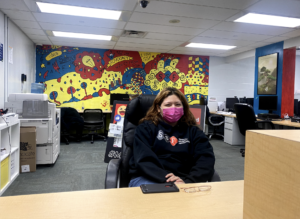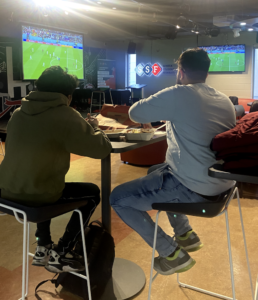
![]() The World Cup has already seen teams protesting the hosts. German players covered their mouths for a team photo. England and France planned to wear “OneLove” armbands until FIFA threatened them with on-field sanctions. These protests deal with Qatar’s human rights issues and its treatment of the LGBT+ community.
The World Cup has already seen teams protesting the hosts. German players covered their mouths for a team photo. England and France planned to wear “OneLove” armbands until FIFA threatened them with on-field sanctions. These protests deal with Qatar’s human rights issues and its treatment of the LGBT+ community.
But what has the reaction in Toronto been?
For one Seneca student, Alex, the platform of the World Cup may be the best time to bring up such controversies.

“The World Cup is on a global stage,” Alex said, “it would be hard to keep them separate. Politics and sports are together as much as people want them to be separate.”

According to another Seneca student Jerry, showing transparency from the get-go was the way to protest.
“It’s on the broadcasting”. Alex went on to say that “transparency is needed so people understand the problem.”
The Qatar World Cup has seen a number of controversies, ever since it was awarded the World Cup in 2010. As the World Cup fast approached, the number of controversies grew.
Qatar’s law against same-sex relationships is just one of the controversies. Performing a same-sex act in Qatar has been outlawed since 2004 and one can get jail time for 7 years.
Another of Qatar’s controversies is the treatment of its migrant workers. As of today, the death of 70% of Qatar’s migrant workers, tasked to help build the infrastructure for this World Cup is still unknown.
Those following protests are unlikely to be the last protests we will see at the World Cup this year. But viewers will just have to see if that’s true.

Be the first to comment